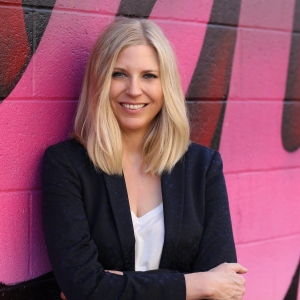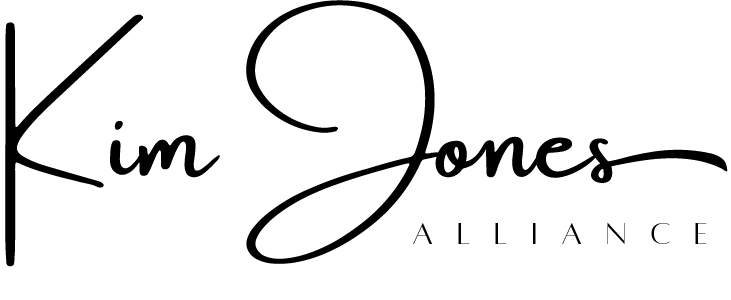Will Coaching Help You Discover Your Career Purpose?
Many people seek career coaching to help them discover their career purpose. However, the traditional techniques and methods used by career coaches may not be sufficient to help you identify your ideal career. Read on for tips on alternative approaches that may bring you the clarity you’re looking for.

The Seemingly Endless Search for My Own Career Purpose
About three years ago, I found myself in yet another career coaching workshop designed to help me create a career vision aligned with my life’s purpose.
By now, I was starting to see a pattern for these coaching workshops that followed roughly the same format, which typically went something like this:
- Describe the activities you enjoyed doing as a kid
- Think about the skills you have that you’re excellent at
- What do people come to you for?
- What were you doing when you were last in a flow state?
The next instructions usually encompassed some version of:
- Take all of these inputs and data points
- Think about the intersection between the things you like to do, the skills you have, and the things people come to you for (your “market value”)
- Use that information to figure out a career that sits in the overlap of your skills, interests, and market value
Ta-dah, that’s the career you should pursue; that’s your purpose. Easy, right?
But If It’s That Easy, Why Are So Many of Us Still Struggling to Discover Our Career Purpose?
Quick question: Who else has had challenges identifying their dream career from simply engaging in career workshops and visioning exercises?
For me personally, after being exposed to multiple versions of this type of exercise over a period of several years, I began to panic. I thought, maybe because I’m unable to come up with my ideal work calling, that means I don’t have a career purpose. Maybe I was never going to find fulfilling or inspiring work. Maybe I was destined to stay stuck in the same soul-sucking corporate work that I’d been doing for ages, and that it was time to start getting on board with that reality.
Needless to say, this outcome was far from what the facilitators of these workshops had in mind as takeaways.
However, I don’t think I’m alone in saying that finding meaningful work, or career purpose, often takes a lot more intention than simply going through a structured career workshop or visioning exercise.
Thankfully, I’ve since learned, after FINALLY making it to the other side of my own career exploration process and identifying my dream job, that finding your career purpose almost always requires a lot more self-inquiry and inner work than what is typically offered in many traditional career visioning workshops and career coaching programs.
The Problem with Traditional Career Coaching
“No problem can be solved from the same level of consciousness that created it.”
– Albert Einstein
The issue with traditional career coaching, which typically deploys some version of the steps outlined above for identifying career purpose (albeit over a much longer period of time using structured career exploration tools), is that your limiting beliefs and perspectives, the ones that got you into your current career dilemma, are not the best beliefs and perspectives to get you where you want to go.
In other words, if you bring your current level of consciousness to this problem, you’ll end up either coming up short when trying to envision your dream career (this was my problem), or you’ll end up constructing a new career on the same faulty foundation you used to manifest the job you already have. (By the way, this almost happened to me through my own experiences using a career coach, more on that below).
Which means you may find yourself back in the same place of dissatisfaction and lack of fulfillment some years down the line. And you definitely don’t want that to happen.
That’s Why Inner Work Is So Essential to the Career Transformation Process.
In fact, I often tell my clients that career transformation is really personal development in disguise. Because in order to identify and implement the career of your dreams, you must first get in touch with who you are under all of the social conditioning that taught you to pursue a career that doesn’t line up with your authentic truth.
This means unlearning a bunch of patently false stuff we’ve been taught to believe about work and ourselves. Beliefs about what work represents (“It’s work, it’s not supposed to be fun or inspiring”), what money represents (“If you don’t hustle 24/7, you’ll never earn enough to make a living”), what are socially acceptable career paths to pursue (“Don’t work for yourself or do something creative unless you want to starve”), and what you’re capable of doing (“Only a lucky few get to do work they love”).
These types of beliefs are so ingrained into our subconscious that we’re barely aware of their existence.
And yet they have so much influence over us that they’ve literally steered us to the careers we have now, the ones that make so many of us desperately unhappy and unfulfilled.
So What’s the Solution?
The steps to discover your career purpose include untangling your social conditioning, getting in touch with your authentic truth, and learning to work with the fears that hold you back from pursuing the career of your dreams.
To do this, you must follow a process that includes inner work.
This means developing new beliefs and perspectives – beliefs about what’s possible, about your own power, and about your ability to create a career you want. It’s from this place that you can craft a vision for your career from a new level of consciousness.
In other words, career transformation works best when you shift your consciousness and beliefs before you embark on a career change.
Otherwise, when engaging in the typical career visioning exercises, you’ll come up with ideas using the lens of your current limiting beliefs and conditioning. For example, you will answer the question of what you’re good at based on what you’ve been trained to do, which may not have anything to do with how you want to spend your precious time while on this planet.
To illustrate, I’m highly skilled at organizing and planning, but these activities don’t bring me much fulfillment. I can thus confidently say that if I used them to conceive of my ideal career, I’d end up just as unhappy as I had been before.
My Experiences with Career Coaching
I encountered my own experiences of almost recreating a new, yet unfulfilling, career, having gone through career coaching several years into my own exploration journey.
My coach, who was excellent by the way, began our engagement together by performing the usual set of skills inventories and values assessments to help me find out what I’m good at and what I like to do.
Problem was, at the time I was referencing the work experiences I had had up to that point. I was completely unaware of the full spectrum of other work options available for me to consider. I had almost no knowledge about the gig economy, online entrepreneurship, or alternative lifestyles that could sustain me under a very different income structure.
And so, what came out of my work with my coach was a career vision I began working towards for the next year, a career as an organizational culture consultant.
This vision checked all of my critical boxes at the time: it gave me the flexibility I wanted, was aligned with my interests, and leveraged the skills I had carefully honed over the years. But it wasn’t until after I started to build this vision that the old dread and anxiety about work came creeping back in, and I found myself back in a state of panic, with fears arising that I must either hate working or that I would never find a career that fulfilled me.
That’s when I took a step back and decided to take a new approach.

The Alternative to Traditional Career Coaching
By then I knew enough to listen to my gut rather than stubbornly push ahead with something that didn’t quite feel right. And my gut was telling me to pause and reassess.
As difficult as it was, I decided to put my nascent consulting career on the back burner until I felt called to pursue work I was inspired to do.
And so, I made the decision to follow my curiosity and explore my inner truth to get to the bottom of what I really wanted to do. And it was through this exploration and taking action on what truly inspired me that I first crossed paths with fellow career journeyers who prompted my knowing that my next chapter would be to become a career transformation coach. (The detailed account of what happened here is a story for another time.)
I now apply my learnings from my own struggle to discover my career purpose when coaching my clients during the early phases of their own career transformation journeys (learn more about my coaching services here). We take the time upfront to explore their interests, curiosities, and inner landscape. We examine their internal blocks and limiting stories, and how these have manifested in their current career choices. We evaluate the possibilities for their future based on exploring the full field of available career options so they don’t lock themselves onto a path constrained by their limiting beliefs. We develop new stories of empowerment that enable them to see the possibilities for their best future.
Taking the Time to Invest in Discovering Your Career Purpose
The bottom line: when you decide to make the life-changing step of pursuing a major career transformation, take the time to fully invest in the process.
Don’t rush to answers because you’re not happy with where you are now. And don’t get discouraged if the answers aren’t coming to you through traditional career coaching or simple visioning exercises.
Remember, if you don’t get the answer you’re looking for, it’s likely an indication that you haven’t dug deep enough or done enough inner and outer exploring.
Really take the time to do this work because this is your chance to build your truest career vision. Invest in this effort like you would in your education or in building your professional skills.
After all, through my own internal exploration and external actions, I came face-to-face with the real reasons I wasn’t discovering my career purpose. Bottom line, I was in my head too much and being driven by my fears and conditioning rather than by my truth. Once I began to reframe my limiting stories, explore the full field of career possibilities, take small steps to explore my curiosity, and rely on my gut to guide me, my dream career found me.
Don't miss the latest:
Kim Jones Alliance Founder and CEO Highlights the Importance of Staying the Course with Diversity and Inclusion in Response to Anti-DEI Executive Orders
Kim Jones Alliance Founder and CEO to Address IMA Financial Group’s State of Business Summit—Greater Ventura County
Yes, You CAN Transform Your Career! Here’s How.

Impact Your Organization
Bring impact to your organization by cultivating equitable cultures and engaged employees.
Kim Jones Alliance offers Corporate coaching, Gender equity advising, Speaking engagements and workshops for organizations seeking a high performing, engaged, and innovative workforce.



